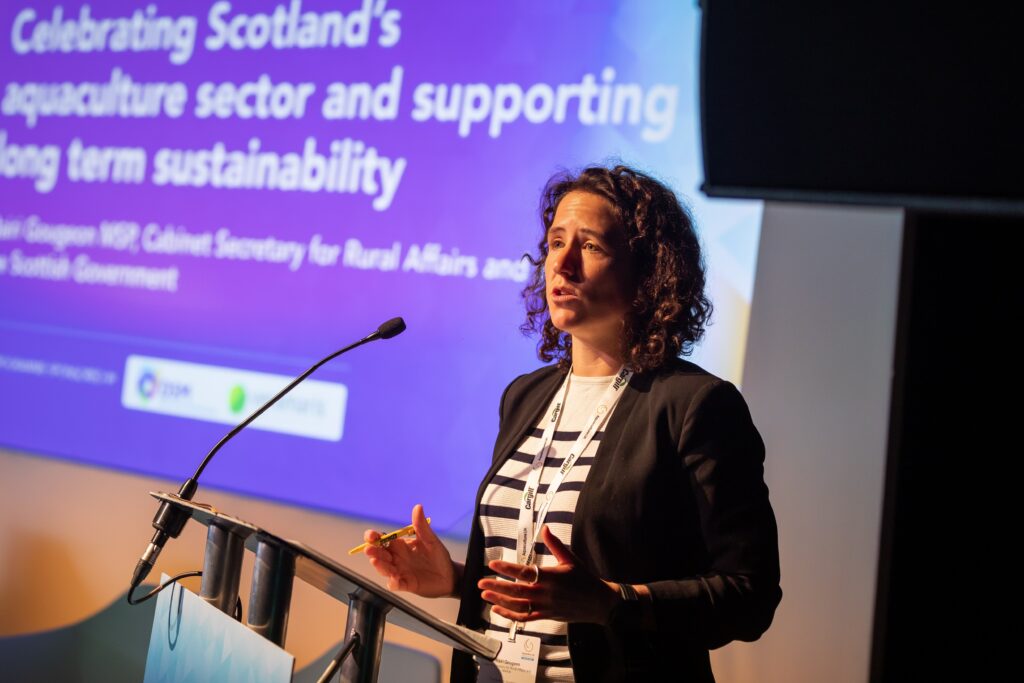Independence would strengthen marine sector, says Scottish Government

An independent Scotland would be able to invest more in its marine economy, while protecting the environment more effectively, according to a paper published today by the Scottish Government.
The paper, Marine Sector in an Independent Scotland, sets out benefits of independence in relation to the fisheries and aquaculture sectors, management of the environment and the development of offshore renewable energy.
It also makes the case for joining/rejoining the European Union as a key element in the plan for independence.
The paper was presented by Mairi Gougeon, Rural Affairs, Land Reform and Islands Secretary in the Scottish Government, in the coastal town of Dunbar.
Gougeon added: “This paper sets out in detail how independence, and having an independent Scottish voice in Europe, will benefit our vital Scottish marine sector, the people and businesses that work in it and the coastal and island communities who depend on it.”
“The marine economy currently faces many challenges, many arising from Brexit which has adversely impacted on Scotland’s coastal and island communities, businesses and industries. We lost freedom of movement and got new barriers to seafood trade. It also meant a loss of fishing opportunities for parts of Scotland’s fleet. An independent Scotland could re-join the EU, gaining access to the biggest single market in the world and reclaiming those benefits.
“The Scottish Government believes that independence is an opportunity to address the current challenges and to put the future of Scotland’s seas in Scotland’s hands.”

Mairi Gougeon, Minister for Rural Affairs, at Aquaculture UK 2022
The paper argues that promises made during the Brexit referendum about safeguarding Scotland’s fishing industry have not been kept, and that Brexit has created new barriers to trade for Scotland’s seafood exports to the EU. The salmon sector alone estimates that post-Brexit red tape is costing around £3m.
Ending freedom of movement across borders has also been problematic for the seafood sector in Scotland, the paper says, with the sector recording unfilled vacancies at around 20%-25%.
The Scottish Government also says that current constitutional limitations “constrain Scotland’s marine interests” with no powers to negotiate fishing quotas and other issues independently.
The paper addresses the alternative of joining the European Economic Area rather than the EU – an option taken by Norway, for example – but argues that this would require complying with the vast majority of EU regulations without having the opportunity to shape them.
The Scottish Government also addresses the issue of the Common Fisheries Policy. Although many voters in fishing communities saw this as a reason for leaving the EU, the paper says: “The overarching aims of the CFP are goals that the Scottish Government strongly supports and has much to contribute to.”
The paper also says that Scotland would have the opportunity to help bring about reform of the CFP.
It does not, however, address the issue of how to continue seamless trade with the rest of the UK once Scotland is part of the EU Single Market. The UK domestic market for salmon is worth around £1.2bn (source: Salmon Scotland) while total overseas exports in 2022 totalled £578m (source: HMRC), of which 64% went to the EU. One problem for a future independent Scotland as an EU member state would be addressing the trade barriers that exist between the EU and what would be its former “home” market south of the border.

